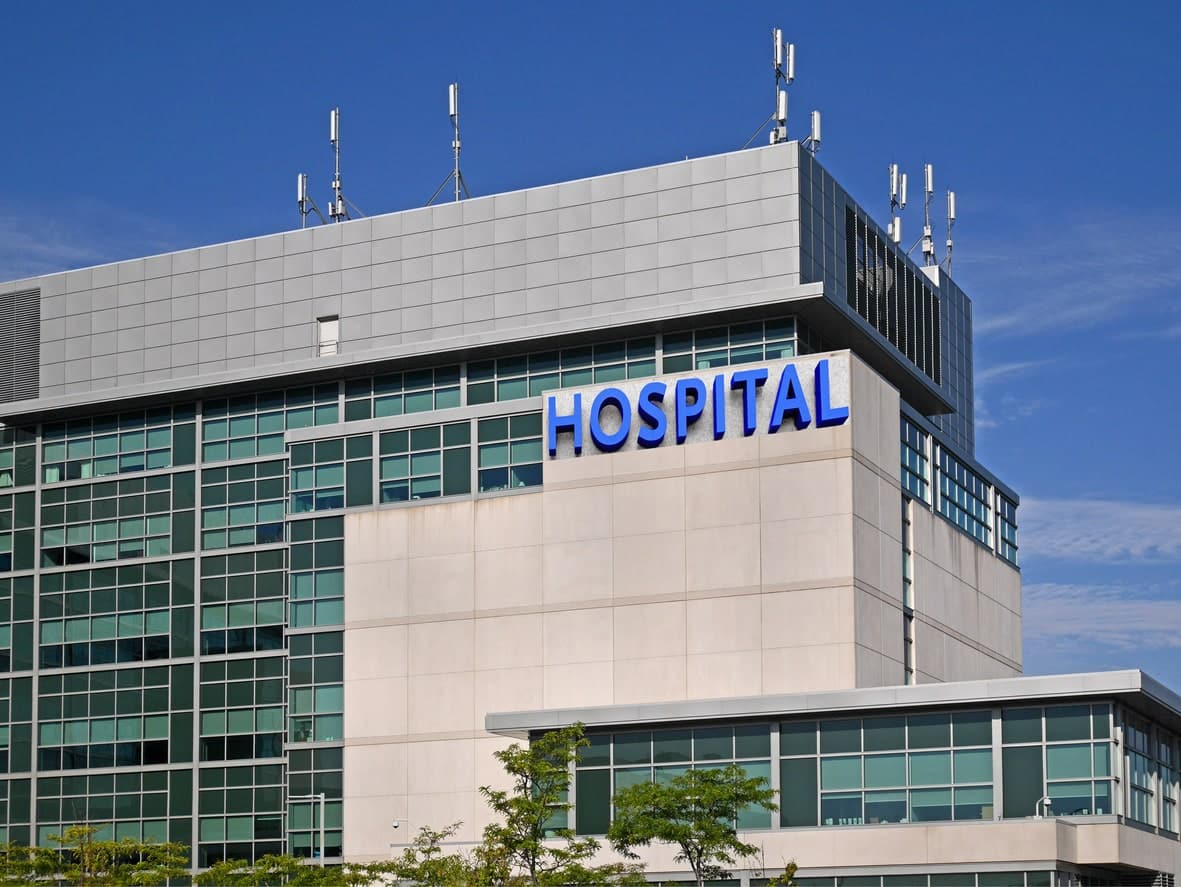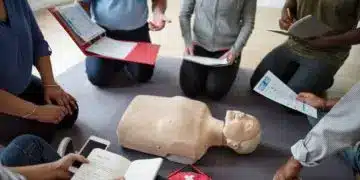Introduction
What is BLS Certification?
Career Opportunities with BLS Certification
Healthcare Professions
BLS certification is a fundamental requirement for various healthcare professions. Professionals with this certification are better equipped to handle emergencies and provide immediate care, improving patient outcomes.
-
Registered Nurses: Registered nurses (RNs) play a crucial role in providing patient care in hospitals, clinics, and other healthcare settings. BLS certification is essential for RNs, as they are often the first to respond to life-threatening situations. With BLS skills, nurses can perform CPR, use an AED, and provide choking relief, ensuring the best possible care for their patients. Moreover, BLS certification is typically a mandatory requirement for employment or licensure as a registered nurse.
-
Emergency Medical Technicians (EMTs) and Paramedics: Emergency Medical Technicians and Paramedics are responsible for responding to emergency calls and providing pre-hospital care to patients. As first responders, they must be well-versed in life-saving techniques such as CPR, AED use, and airway management. BLS certification is a critical requirement for EMTs and paramedics, ensuring they possess the necessary skills to handle a wide range of medical emergencies. Additionally, obtaining BLS certification is often a prerequisite for enrolling in advanced EMT or paramedic training programs.
-
Medical Assistants: Medical assistants work alongside physicians and nurses in various healthcare settings, performing both administrative and clinical tasks. BLS certification is vital for medical assistants, as they may be involved in direct patient care, including taking vital signs, administering medications, and assisting with minor procedures. In emergency situations, medical assistants with BLS certification can provide immediate care, potentially saving lives. Employers often require medical assistants to have BLS certification as a condition of employment.
-
Respiratory Therapists: Respiratory therapists specialize in evaluating, treating, and managing patients with breathing difficulties or other cardiopulmonary disorders. They work closely with patients who may be at high risk for respiratory emergencies, making BLS certification essential. BLS skills enable respiratory therapists to quickly respond to emergencies, administer life-saving interventions, and stabilize patients before further treatment can be provided. BLS certification is not only beneficial but is often required for respiratory therapists seeking employment in various healthcare settings.
Public Safety and Emergency Response
BLS certification is essential for professionals working in public safety and emergency response roles. These individuals are often the first on the scene during emergencies, making it crucial for them to possess the necessary life-saving skills.
-
Firefighters: Firefighters not only extinguish fires but also provide critical support during various emergencies, including medical incidents, natural disasters, and hazardous materials situations. BLS certification is a necessity for firefighters, as they must be prepared to deliver life-saving care to victims of emergencies. Firefighters with BLS certification can perform CPR, use an AED, and administer other essential interventions, ensuring the best possible outcomes for those affected by emergencies. Many fire departments require BLS certification as part of their hiring process or ongoing training programs.
-
Police Officers: Police officers frequently encounter medical emergencies while on duty, such as car accidents, drug overdoses, or violent incidents. BLS certification equips officers with the skills needed to respond effectively to these situations, providing immediate care and potentially saving lives. Officers trained in BLS can perform CPR, use an AED, and provide other first-aid measures until medical professionals arrive. Many law enforcement agencies require their officers to obtain and maintain BLS certification as part of their ongoing training and professional development.
-
Lifeguards: Lifeguards play a vital role in ensuring the safety of swimmers at pools, beaches, and water parks. They must be vigilant and prepared to respond to emergencies, such as drowning incidents or injuries sustained in the water. BLS certification is crucial for lifeguards, as it provides them with the skills needed to provide immediate care in emergencies. Lifeguards with BLS certification can perform CPR, use an AED, and manage choking incidents, increasing the chances of survival for those in distress. Many employers and certifying organizations require lifeguards to have BLS certification to ensure the highest standards of safety and care.
Education and Childcare
BLS certification is valuable for professionals working in education and childcare settings. These individuals are responsible for the safety and well-being of children and must be prepared to respond to emergencies that may occur.
-
Teachers: Teachers play a crucial role in fostering a safe and nurturing learning environment for students. BLS certification is beneficial for teachers, as they are responsible for student safety during school hours and may need to respond to medical emergencies such as injuries, allergic reactions, or choking incidents. With BLS skills, teachers can perform CPR, use an AED, and provide other life-saving interventions, ensuring the best possible care for their students. Some schools and districts may require or encourage teachers to obtain BLS certification as part of their professional development.
-
Coaches: Athletic coaches work closely with athletes, overseeing training sessions and competitions. They must be prepared to address injuries or medical emergencies that can occur during sports activities, such as concussions, heat exhaustion, or cardiac events. BLS certification equips coaches with the necessary skills to respond effectively to these situations, providing immediate care and potentially saving lives. Coaches trained in BLS can perform CPR, use an AED, and provide other essential first-aid measures. Many schools, sports organizations, and governing bodies require or recommend coaches to have BLS certification to ensure the safety of their athletes.
-
Daycare Providers: Daycare providers are entrusted with the care of young children, making their role in ensuring safety and well-being paramount. BLS certification is essential for daycare providers, as they must be prepared to handle medical emergencies involving infants and toddlers, such as choking, respiratory issues, or sudden illnesses. Daycare providers with BLS certification can perform infant and child CPR, use an AED, and manage other age-appropriate emergency interventions. Many states and licensing agencies require daycare providers to obtain and maintain BLS certification to ensure the highest standards of care for the children under their supervision.
Corporate and Industrial Settings
Having a BLS certification is advantageous for professionals in corporate and industrial environments since they play a key role in safeguarding employees’ safety and well-being. They need to be ready and equipped to handle any emergencies that might arise in their workplace.
-
Safety Officers: Safety officers play a critical role in overseeing workplace safety, including the development and implementation of safety policies, conducting inspections, and providing training to employees. BLS certification is advantageous for safety officers, as they may need to respond to medical emergencies in the workplace, such as injuries, cardiac events, or respiratory issues. With BLS skills, safety officers can perform CPR, use an AED, and provide other life-saving interventions, ensuring the best possible care for their colleagues. Some employers may require or encourage safety officers to obtain BLS certification as part of their professional development or job requirements.
-
Occupational Health Specialists: Occupational health specialists are responsible for ensuring employee health and well-being in various work environments. They evaluate workplace hazards, develop strategies to mitigate risks and provide support and resources to promote employee health. BLS certification is valuable for occupational health specialists, as they may encounter medical emergencies in the workplace and need to provide immediate care. Professionals trained in BLS can perform CPR, use an AED, and provide other essential first aid measures, potentially saving lives and improving overall workplace safety. Employers and professional organizations may require or recommend occupational health specialists to have BLS certification to ensure the highest standards of care and expertise in their field.
Importance of BLS Certification in Various Professions
Setting Yourself Apart with BLS Certification
In today’s competitive job market, distinguishing yourself from other candidates is crucial for securing your desired position. Obtaining a Basic Life Support (BLS) certification is one way to set yourself apart from the competition and showcase your commitment to safety, well-being, and preparedness in emergencies. In this section, we will explore the various ways in which having a BLS certification can enhance your professional profile and help you stand out amongst other job applicants.
Enhanced Skill Set: A BLS certification equips you with valuable life-saving skills, such as CPR, AED usage, and first aid techniques. These skills are not only applicable in professional settings but also in everyday life. Possessing these abilities showcases your versatility and adaptability, making you an attractive candidate for potential employers across various industries.
Commitment to Safety and Preparedness: Employers value candidates who prioritize safety and are prepared to handle emergencies. A BLS certification signals to employers that you have undergone rigorous training and are capable of responding effectively to critical situations. This level of preparedness reflects positively on your work ethic and dedication to maintaining a safe environment for yourself and those around you.
Increased Employment Opportunities: As more organizations recognize the importance of BLS certification, the demand for certified professionals grows. Industries such as healthcare, education, childcare, sports, and corporate settings often require or prefer candidates with BLS certification. By obtaining this certification, you expand your career opportunities and increase your chances of securing employment in these fields.
Compliance with Industry Standards: In some professions, BLS certification is a mandatory requirement. For example, healthcare professionals, emergency responders, and childcare providers are often legally required to maintain their certification. By having a BLS certification, you demonstrate your compliance with industry standards and regulations, which can increase your credibility and employability.
Professional Development and Growth: Investing in a BLS certification shows your commitment to continuous learning and professional development. Employers appreciate candidates who take the initiative to enhance their knowledge and skills. By obtaining a BLS certification, you not only improve your professional capabilities but also signal to employers that you are dedicated to personal growth and advancing your career.
Competitive Edge in the Job Market: In a pool of job applicants with similar qualifications and experience, having a BLS certification can be the deciding factor for potential employers. This certification indicates your proactiveness, resourcefulness, and ability to handle high-pressure situations effectively. As a result, having a BLS certification can give you a competitive advantage over other candidates and increase your chances of being selected for a job.
Increased Demand for Professionals with Life-saving Skills
Legal and Ethical Implications of Not Having BLS Certification
In some professions, BLS certification is a mandatory requirement. For example, healthcare professionals, emergency responders, and childcare providers are often legally required to maintain their certification. Not having a BLS certification in these fields can lead to legal consequences, such as fines, penalties, or even loss of licensure.
From an ethical standpoint, lacking BLS certification can have significant implications as well. Professionals in certain fields have a moral obligation to ensure the safety and well-being of those in their care. Failing to obtain and maintain a BLS certification can be seen as neglecting this responsibility, potentially putting lives at risk.
Moreover, not having BLS certification can affect your professional reputation and credibility. Employers and colleagues may question your commitment to safety and preparedness, which could hinder your career growth and opportunities.
How to Obtain BLS Certification
Training Centers
Tips for Finding a Reputable Center
- Look for centers accredited by the AHA or the Red Cross, as these organizations set the industry standards for BLS training.
- Seek recommendations from colleagues, friends, or online reviews to find a center with a good reputation.
- Verify the qualifications and experience of the instructors, ensuring they have relevant expertise in emergency response and medical care.
- Visit the center beforehand to assess the facilities, equipment, and overall learning environment.
Online Courses
Guidance for Choosing a Quality Online Program
- Ensure the course is accredited by the AHA, the Red Cross, or another reputable organization.
- Research the course content and structure to ensure it covers all necessary topics, such as CPR, AED usage, and first aid techniques.
- Check if the course offers interactive learning materials, such as video demonstrations and quizzes, to reinforce your understanding of the content.
- Look for courses that provide access to instructors or support staff for questions and clarifications.
Blended Learning
Time and Cost Involved in Obtaining BLS Certification
The time it takes to complete a BLS certification course varies depending on the format and your individual learning pace. In general, in-person training and blended learning courses can take anywhere from 4 to 6 hours, while online courses may take longer due to their self-paced nature.
As for the cost, BLS certification courses can range from $50 to $150, depending on the provider, location, and course format. It is essential to consider both the time and cost factors when choosing a program that best suits your needs and budget.






